A leader in The Tablet this week hails Cardinal Christoph Schonborn of Vienna as something of a hero of the Catholic Church in the midst of the child-abuse scandal. Apparently he has led his congregation in a litany of confession and repentance and delivered a sermon which implicitly contradicted the Vatican’s attempts to blame the mass media for the crisis. His cathedral is something of a focus for the We Are Church movement, which opposed Cardinal Schonborn’s predecessor, Cardinal Hans Groer, who it is alleged resisted pressure to resign in the face of evidence that he had sexually abused a minor.
Cardinal Schonborn has also revealed that he had discussed the allegations against Cardinal Groer with Pope Benedict when he was head of the Congregation for the Doctrine of the Faith. The then Cardinal Ratzinger had apparently wanted cardinal Groer to be properly investigated. But a group inside the Vatican – “the diplomatic party in the State Secretariat who wanted to shove everything on to the media”, according to The Tablet – had protected him. Cardinal Schonborn distinctly recalls Ratzinger saying afterwards: “The other party got its way.”
Meanwhile, an investigation published in the American weekly National Catholic Reporter has claimed that the Mexican founder of the Legionaries of Christ, Fr. Marcial Maciel Degollado, who abused boys over decades while enjoying the patronage of Pope John Paul II and who died in 2008, escaped detection for so long because he used the Legion’s vast wealth to pay off senior Vatican dignitaries. Cardinal Ratzinger is specifically named as someone who refused an offer of money, while the Secretariat of State, headed by Cardinal Angelo Sodano, again opposed his demands for a full investigation.
The role of financial corruption in this crisis gives it another moral gravity. But Pope Benedict seems to be emerging better than some observers, perhaps led by American lawyers who see a fast buck to be made from compensation class actions, would like him to. As Cardinal Ratzinger, he evidently tried in the past to be part of the solution, rather than an accessory to the problem. As Pope, he really does have the opportunity and authority to be that solution.
I say again: If Benedict really is to be a great reforming Pope, then he needs to dissociate himself from the smug and supercilious tones that emerge from some parts of the Vatican and Ireland by acting decisively and swiftly against those who would have us believe that this is a minor issue of limited implications for the Church, fuelled by the idle gossip of the media. Justice for the victims of these terrible crimes must be seen to be done, as Benedict must know.





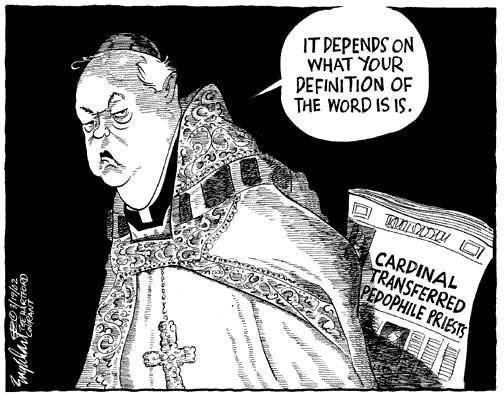

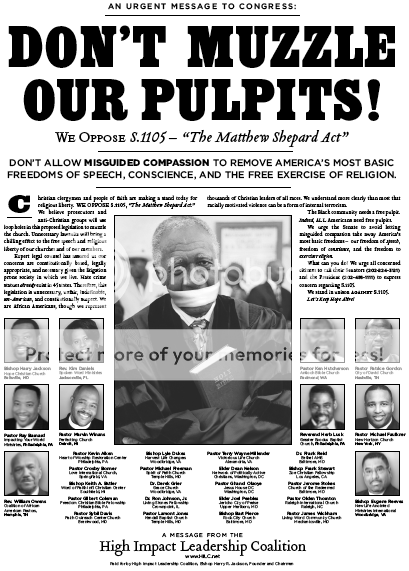




![paedophile [pedophile] Priest Oggling Young Girl](http://www.saff.ukhq.co.uk/vicchild1.gif)






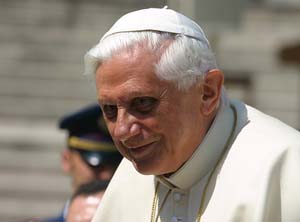 Tubingen, Germany - The Catholic church was under the increasing threat to deteriorate into a sect under the rule of Pope Benedict XVI, a leading progressive theologian said.
Tubingen, Germany - The Catholic church was under the increasing threat to deteriorate into a sect under the rule of Pope Benedict XVI, a leading progressive theologian said.



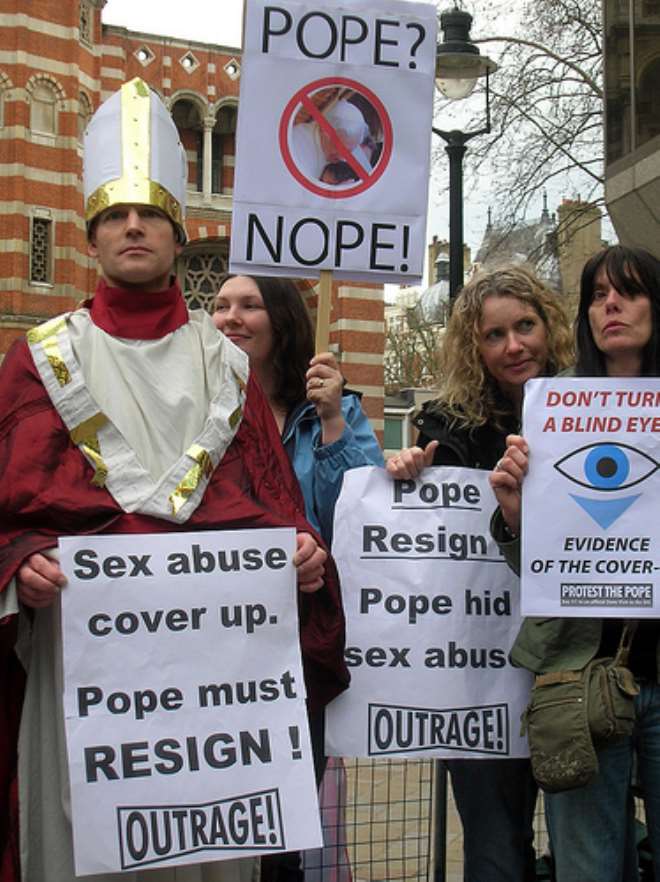
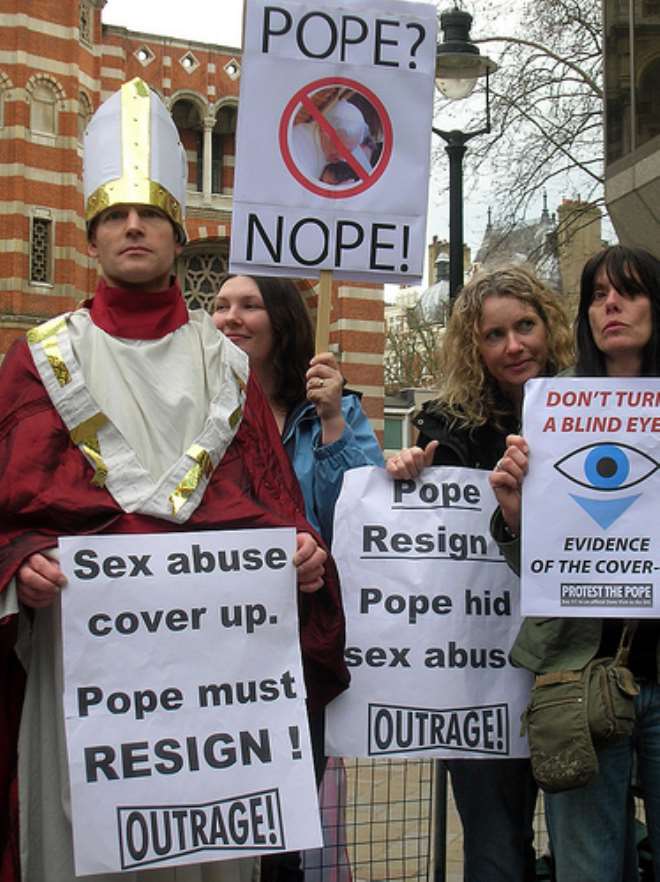
 RECOMMEND
RECOMMEND





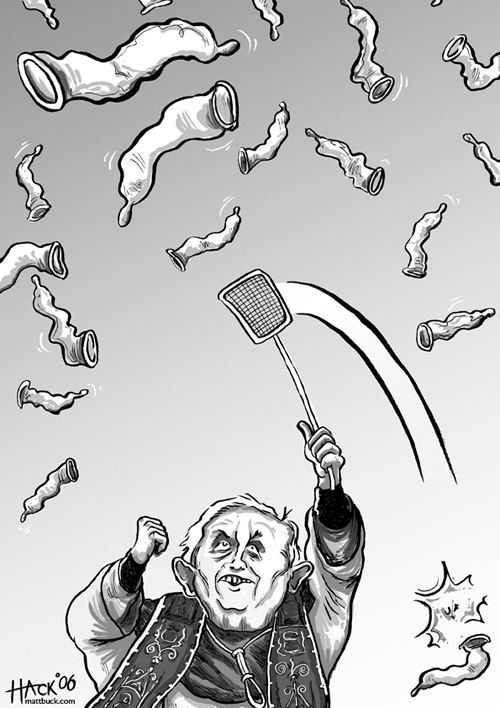




 In
In 

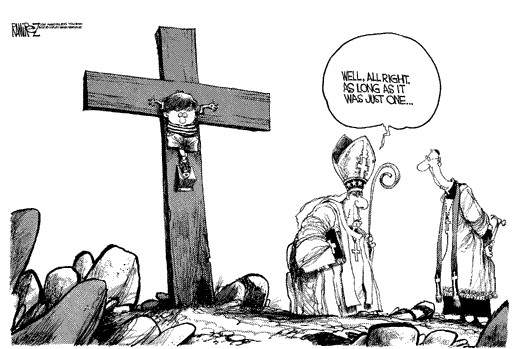

 Norway’s Catholic
Norway’s Catholic



